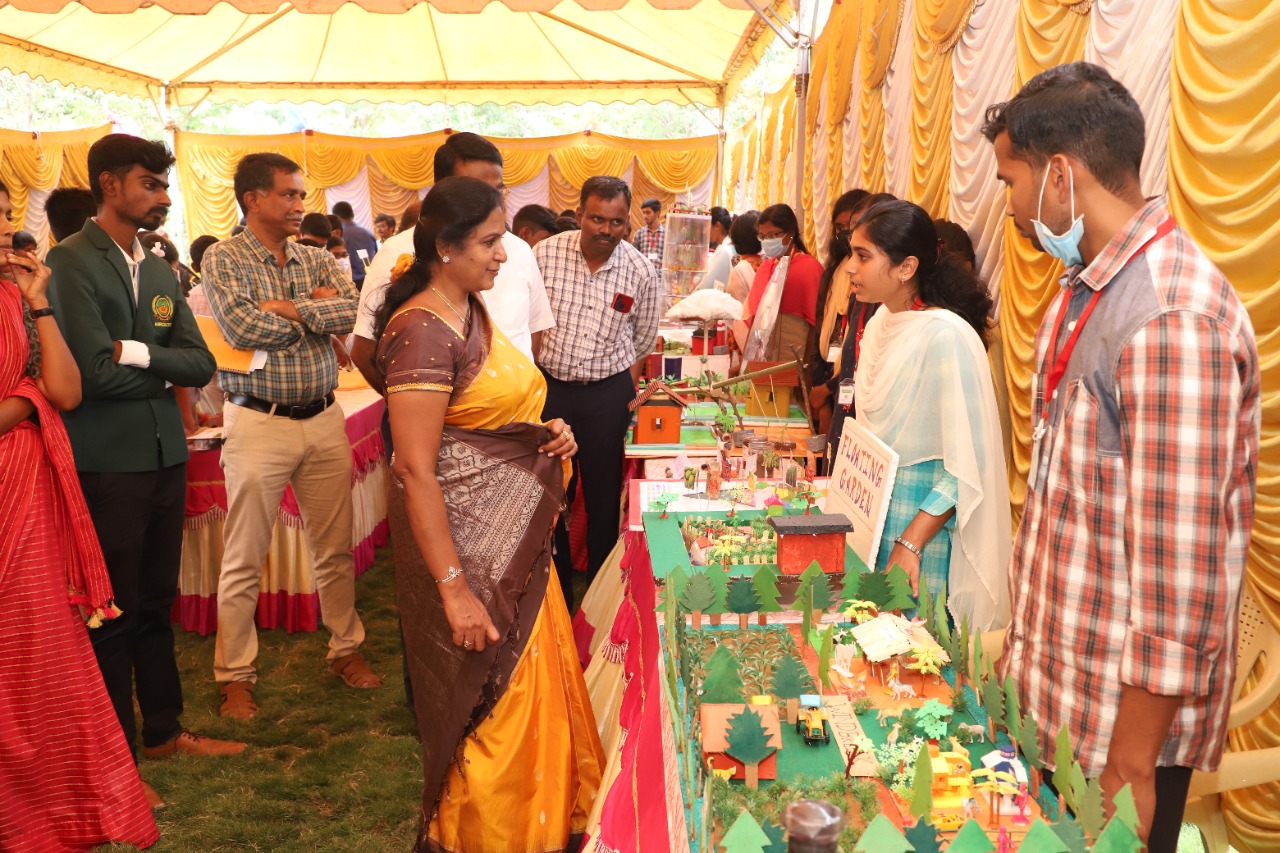The Tamil Nadu Agricultural University (TNAU) had its genesis from establishment of an Agricultural School at Saidapet, Madras, Tamil Nadu, as early as 1868 and it was later relocated at Coimbatore.
Get in touch
- info@tnau.ac.in
- 0422 6611200
- Monday to Friday: 9am to 5pm
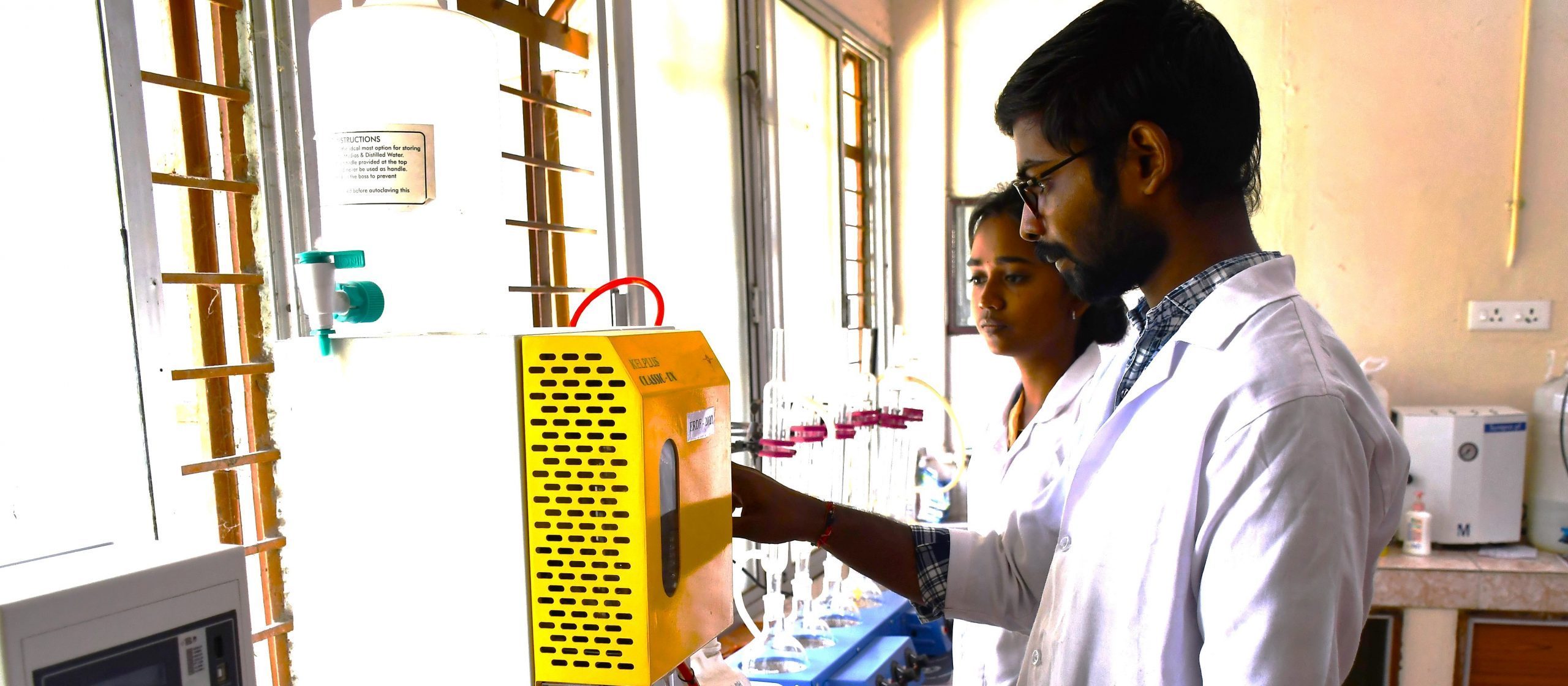
M.Sc. (Ag.) in Environmental Science
Prelude
Environmental challenges are all around us. Climate change, Global warming, Ozone layer depletion, acid rain, environmental pollution, photochemical smog, habitat loss, loss of biodiversity, ground water depletion, introduction of alien species, solid waste management and wastewater disposal are the major environmental challenges, the present world is facing. These environmental challenges would lead to various environmental threat if not managed properly in a scientific manner. To address these environmental issues and to find appropriate technology with scientific solution, the Master’s in Environmental Science program has been started at Tamil Nadu Agricultural University in the year 1989.
Why this programme?
- Thorough understanding of environment and its components related to agriculture.
- To learn different methods of preventing/controlling pollution and create a less-polluted or pollution-free environment containing clean air, water, food, and land.
- Provide technologies to mitigate environmental problems for sustainable agriculture, periodical training on agro–waste recycling and techniques of organic agriculture.
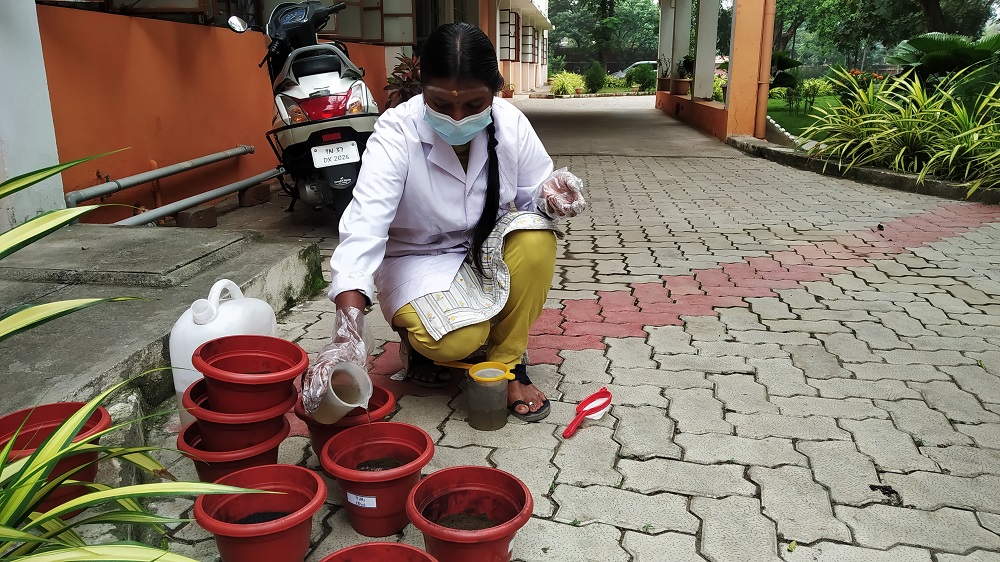
Study Programme
The Masters programme in Environmental Science has been designed following the ICAR/UGC guidelines. The course imparts:
- Educating students and developing human resources in the field of Environmental Sciences to meet the national and global demands.
- Engaging advanced and innovative research to develop technologies for managing polluted soil and water.
- Eco- restoration of industrial effluent contaminated soils.
- To clean up the polluted water bodies through phyto and bioremediation techniques.
- To develop bio - composting technologies for utilization of various agricultural and industrial wastes.
- To develop green corridors for disaster management in coastal districts.
- To monitor the particulate matter and greenhouse gas emission levels in the atmosphere.
- To develop climate change mitigation strategies through carbon sequestration in agroecosystem.

Colleges offering
Application and Admission
Interested in taking part in the programme of Environmental Science? Find out more about the specific Admission requirements and the application procedures. If you doubt whether admission is possible, feel free to apply online. The Admission Committee will check your admissibility.
Future Career
Want to know about the job opportunities after completing the Master’s in Environmental Science Course. See where our alumni are placed.
- Central Pollution Control Board,
- State Pollution Control Board
- If UGC-NET qualified (JRF), scope to do doctoral research with fully funded support.
- If UGC-NET qualified, Assistant Professor
- ARS – Scientist
Student placement
- Mrs. P. Vinothini, Environmental Scientist,Tamil Nadu Pollution Control Board, Chennai
- Mrs. Akila. S, Assistant Professor, SRM, Chennai
- Mrs. Akhila. A, Teacher, Vocational Higher Secondary School, Kerala
- Mrs. Sangeetha. G, Assistant Professor, Gandhigram Rural Institute, Dindugal
- Mr. Yadav Prakash. S, Assistant Professor, Dhanalakshmi Srinivasan Agriculture College, Perambalur.
- Mrs. Priyatharshini. S, Assistant Professor, Vanavarayar Institute of Agriculture, Pollachi.
- Mr. Vignesh Kumar. M, Assistant Professor, Krishna Institute of Agriculture and Technology, Tamil Nadu.
- Mrs. Megala Devi. R, Assistant Professor, Aravindhar Agricultural Institute of Technology, Tiruvannamalai, Tamil Nadu
- Mr. Naveen Kumar A, Agriculture Officer, National Agro Foundation, Chennai
- Mrs. Sabithadevi. R, Assistant Professor, Imayam Institute of Agriculture and Technology, Trichy
- Mr. Khan Agha, Environmental Secretary, Ministry of Mines and Natural Resources, Afghanistan
- Mrs. M.S. Soundariya, Agriculture Field Officer, Central Bank of India, Tamil Nadu
- Mr. P. Jawahar, IAS, Secretary to Government, Puducherry
- Mr. C. Dhanabalan, Forest Range Officer, Tamil Nadu
Master’s in Environmental Science
Master Courses
After admission, the students undergo a set of courses that help them understand the basics of Environmental Science as per the Choice Based Credit System (CBCS) with a total credit load of 70 credits, of which 30 credits are exclusively earmarked for their thesis Research.
Master’s thesis research
After completing the courses in the first year, the students start their thesis research. Each student is assigned to an experienced faculty, approved by the Dean of School of Post-Graduate Studies, who would guide the student on his/ her choice of research topic.
Research internship
The students are exposed to several scientific events like symposia and conferences. Many are encouraged to have internship training at other institutes for a couple of months, either in India or abroad.
Student Experiences
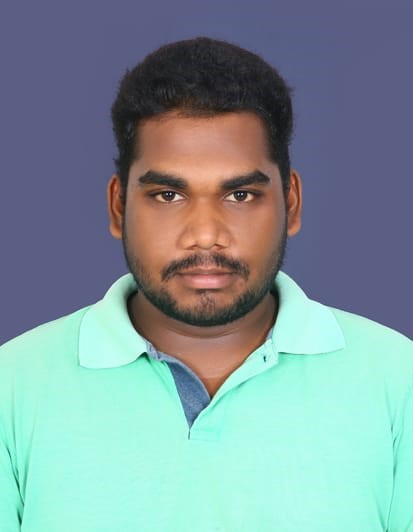
This course gave me a deep view about pressing global issues.
Problems like global warming, greenhouse effect, climate change etc, seem to be more threatening than they were after I get into this programme. This programme also created awareness in me about daily issues in the society like solid waste management, waste water management, problem of E-waste. I also learned about some of the pollution which aren’t even in the spotlight such as pesticide pollution, noise pollution, indoor air pollution, pollution due to microplastics etc., and I think people should talk about this more often. Overall, this programme has been an eye opening for me in many things and I intend to gain more knowledge and contribute my time and soul to be a part of something bigger.
Sundra Vigneshwar
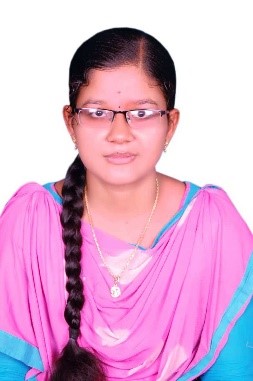
“Since I adore nature, I decided to study environmental science. I’ve always found science to
be fascinating, so I knew I wanted to look at the environment from a scientific perspective. I am able to link my passion and what I think will be my contribution to the world thanks to the Environmental science major at TNAU. It is getting me ready for a fulfilling profession. The community for the major is fantastic; it is cooperative, promotes intellectual discovery, and values variety. Overall, ES affords me a great deal of academic flexibility and incredible options like study abroad, research, and field trips.”
Priyanga S

“I am very happy to complete environmental science course in the environmental science department. It was my goal and passion to study this course. This department encouraged me to explore my talent and potential by providing an exceptional integrated learning environment. I am really grateful to my teachers who have changed my whole aspect towards learning. And, I express my heartfelt thanks to the institution for giving me perfect opportunity to explore myself.”
Priyatharshini Sengottiyan

